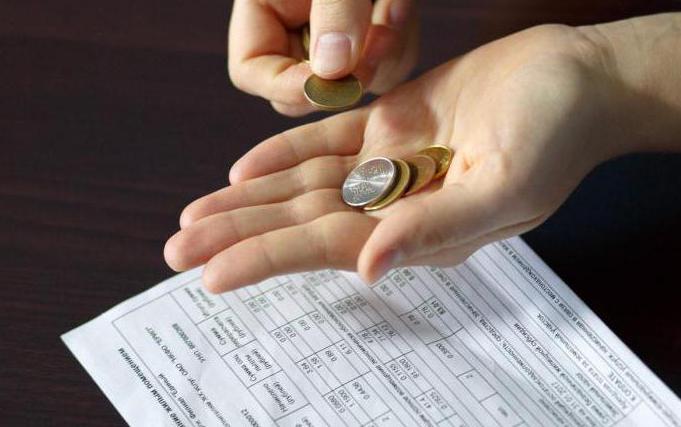This article should begin with the fact that reaching retirement age cannot be the reason for dismissal. The employee retains the right to continue working without changing the schedule and salary. The topic of indexation of pensions for working pensioners after dismissal affects the entire population of the country.
If a pensioner wants to quit, he is obliged to notify the employer about this in 14 days. However, in recent years, pensioners are not in a hurry to quit their jobs when they reach retirement age. Since the payments are not too large, they are only enough to pay utility bills and poor food. But drugs and clothes have to be earned separately.
The size of the average pension in our country is not a secret to anyone. This determines the employment of pensioners. Although for some elderly people, labor activity is necessary not so much because of salary as to maintain a general psychoemotional tone. But this is rather an exception to the rule. In the past few years, the size of pensions has undergone changes 3 times in one year. In February, the insurance pension rises, in April the state pension payments (social) are indexed, and in early August there is a recalculation for pensioners who work.
This article will focus on indexing pensions for working retirees after dismissal. This topic is of concern to many Russian citizens, as it directly relates to their income.
Who is involved in indexing?
It must be recalled that in our country women are considered to be pensioners at the age of fifty-five and men at sixty. In the event that a citizen has reached this age, but does not work for someone, but is registered as an individual entrepreneur, works as a notary, or practices law, and is also officially engaged in tutoring, he is considered working.
All pensioners who have not parted with their labor activities are accounted for separately in the Pension Fund. This category of citizens is most affected by various government decisions regarding pension payments. The population would like to get real examples of indexing pensions for working pensioners after dismissal, since the authorities systematically say that working pensioners should not receive a pension while they work and receive wages. Of course, this is not entirely true.
More on indexing
So, what is the procedure for indexing pensions to working retirees after leaving?
It is carried out if it is necessary to increase the size of payments in order to compensate for inflation and increase the cost of living. Recalculation is made every year. However, this year there was no planned indexation, since a deficit of the state budget was revealed. Thus, an increase in pension occurred at the beginning of the year by only 4%. It is so small that it is almost imperceptible.
In addition, at the beginning of the year, all pensioners received an increase of 5,000 rubles as a one-time assistance. The government is trying its best to ensure the fulfillment of its promises to senior citizens. The bill establishing the indexation procedure for working citizens was signed in 2017, and begins to operate on January 1, 2018. In addition, the government made a statement that the indexation of pension payments to non-working pensioners will be carried out in the amount of 3.7%.
The mechanism of indexing pensions for working pensioners after dismissal worries many Russians. Based on the material, it will be possible to understand it with some degree of probability.
At the same level
The average pension in the country is about 20 thousand rubles. There are regions where it is 12 thousand, which is very small.
In 2017, indexed payments should have been added to this pension, but since indexation was, one might say, symbolic, pensions remained at the same level.
Not carried out at all
As for working retirees, they were not indexed at all. You can understand their negative attitude to such a decision of the government, in comparison with other pensioners, their pension remains unchanged until the dismissal from work. Separately, it is worth mentioning that the issue of stopping the payment of pensions to working pensioners whose income exceeds 1 million rubles was also considered. in year. But things didn’t get to such extreme measures, and working pensioners still continue to receive pensions, however, without index premiums.
The size of the indexation of retired pensioners in 2017
Senior citizens who continue to work and are interested in whether they are eligible for recalculation should be aware that upon dismissal, pension payments should be increased without fail. In the event that a pensioner receives them in accordance with state support, then indexation of pensions to working pensioners after dismissal is carried out. As soon as such a pensioner finishes work, a pension is accrued to him in accordance with the rules of state security.
In order to get an increase, the retired pensioner should not go anywhere and take any certificates. This is due to the fact that the Pension Fund introduced a new reporting form, which is much simpler than the previous version. According to the new requirements, enterprises are obliged to inform the Pension Fund employees about the dismissal of employees. This means that fund employees will automatically recalculate.
How to get
As we said above, upon dismissal in 2017, pensioners should not apply to the Pension Fund with a request for recalculation after the dismissal has occurred, since the employer has already transferred the information. The exception is citizens who quit before April 1, 2016. They continue to be considered employed, since no one submitted information about them, they need to go to the FIU. For personal use, indexation payments must be accrued within 4 months.
Sometimes fund employees may require additional documents to confirm any information. But, as a rule, this is not required. There are several ways to apply for an application:
- in person
- convey with legal representative;
- You can write a statement to the MFC;
- send the application by registered mail.

The nuances of the process
What does the law say about indexing pensions to working retirees after dismissal?
If a pensioner who has received indexation decides to get a job again, then payments have no right to reduce, because the law does not say anything about it. That is, there are no direct indications that the surcharge should be reduced.
There is another interesting point when calculating the indexation of pensions for working pensioners after dismissal. The pensioner must recalculate the amount of the pension for the entire period during which he worked while being retired. The timing of the indexation of pensions to a working pensioner after dismissal depends on a number of factors. In order to preserve the rights of employed pensioners, the government established in the new law, which will enter into force from the beginning of 2018, the deadline for receiving the established additional indexation is 1 month, i.e. the entire surcharge will be charged in the first month after the official dismissal.Currently, in practice, the process may take a little longer. The reason for this is that the employer must submit reports on dismissed citizens by the 15th day of the month that follows the reporting one. Pension fund employees need time to review reports and assign increases. The payment of indexed pension coverage begins only from the next month in accordance with the approved procedure.
Such a long accrual period causes complaints from citizens, so the order was changed, and accrual will occur within a month. These changes will take effect from the beginning of the new year.
Thus, there are two ways to increase pension payments: get an increase after leaving, and then get a job again or work for a certain period, and then after leaving get an increase for this entire period. Each pensioner can get acquainted with the size of the required increases on the website of the Pension Fund.
Calculation Example
The citizen worked for three years, while being retired. After dismissal and applying to the Pension Fund for the return of indexed funds, he will receive an increase in the form of 16% of pension payments for the entire time of his labor activity, when the increase was not paid. This norm has been in force since 2015 and remains relevant until today.
This is an approximate calculation of pension indexation after the dismissal of a working pensioner.
Finally
Thus, it turns out that in 2017 indexation payments to working pensioners will not be transferred, this situation will be extended until 2019. However, after dismissal, they will receive an increase calculated for the entire period of labor activity that took place after leaving for a well-deserved rest. The article examined in detail everything about the indexation of pensions to working pensioners after leaving their jobs.